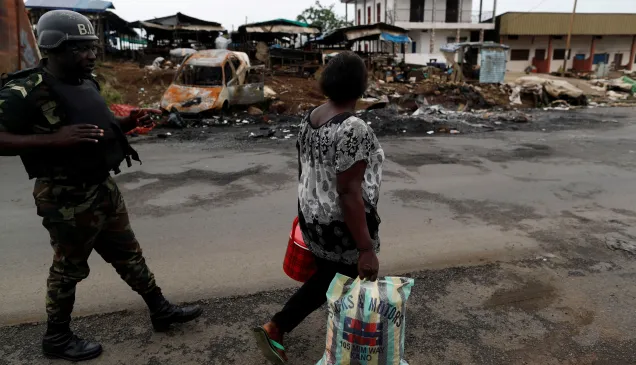Rebuilding Mosul, one business at a time
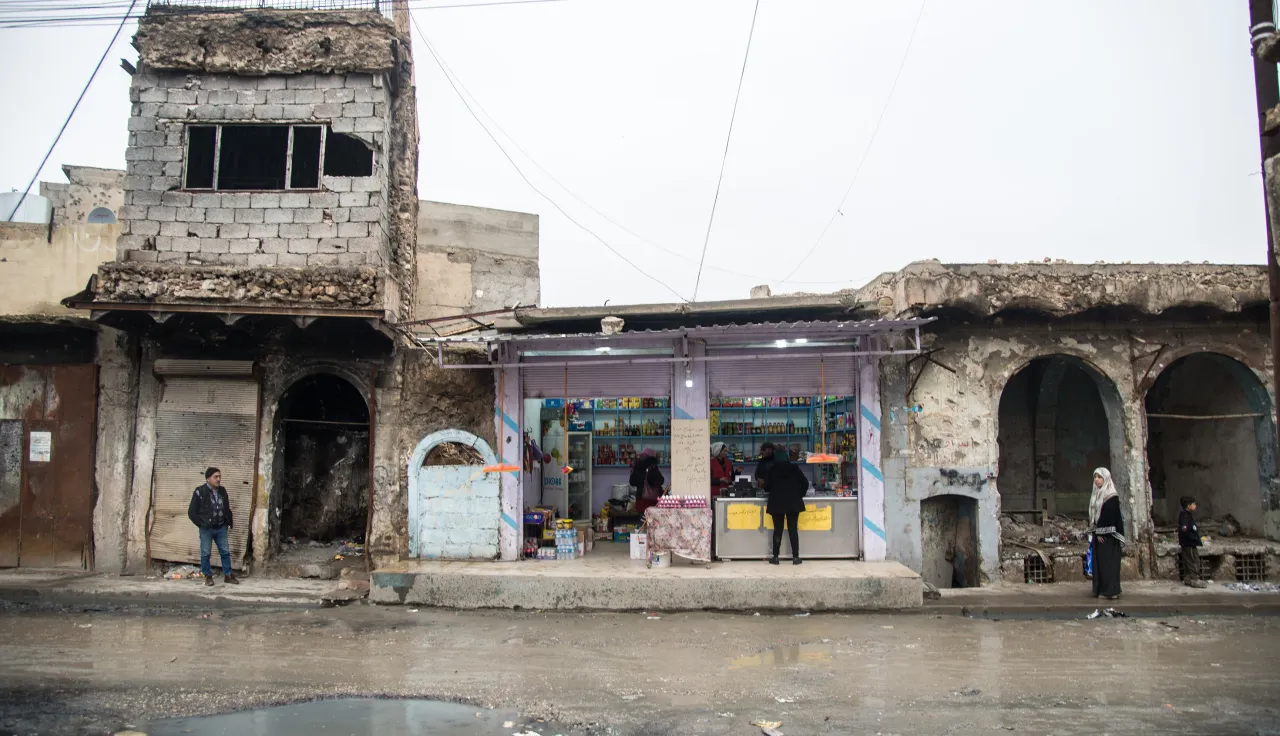
Residents of Mosul’s old town are gradually bringing life back to the streets of their city. To help them pick up the pieces and resume their lives, the International Committee of the Red Cross (ICRC) is providing support for the owners of small- and medium-sized businesses. Some businesses are just getting started, others are up and running like before, and some are doing better than ever. Here are a few of their stories.
Micro-economic initiatives take a bottom-up approach to helping people earn a living: each participant designs a plan to get their small business going, and the initiatives give them the boost they need to succeed, whether it be equipment, a cash grant or vocational training.
One workshop, many lives
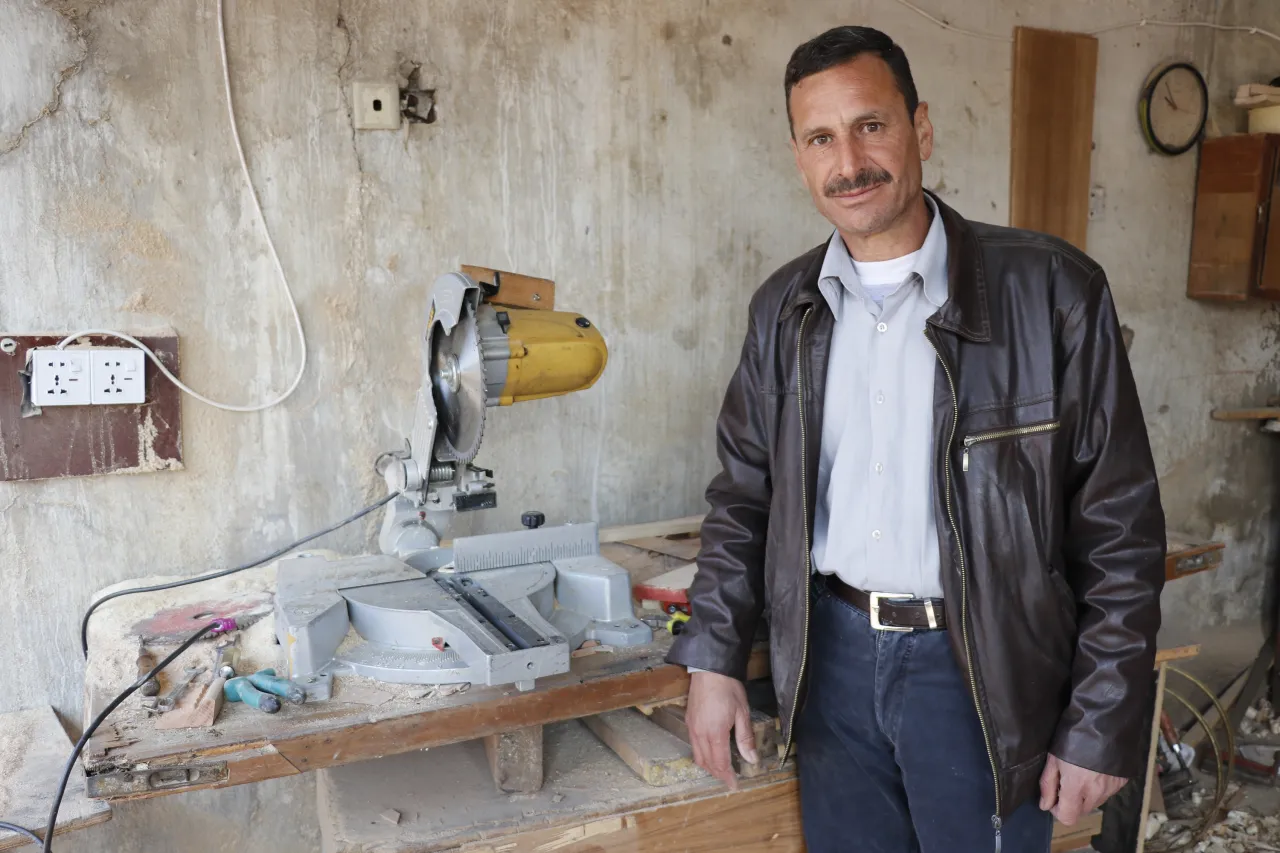
CC BY-NC-ND / ICRC / James Matthews
Abdul Hakim lives and works in Mosul's old town. Before 2014, his carpentry shop employed three or four workers. But when the conflict came and his workshop was pillaged repeatedly, he had to sell his woodworking tools just to get by.
Once the conflict ended, Abdul Hakim started over from scratch, with help from a microeconomic initiative. Now his workshop employs ten people. He's proud because when his workshop does well, the benefits ripple out into the community.
One of his workers explains: "Nine friends and I started working for Abdul Hakim. The business flourished, and now we can afford to pay our rent and take our kids to the doctor. Our lives are much better."
Abdul Hakim believes the benefits extend outward from his workers to taxi drivers, grocers and other businesses in the neighbourhood: “You'd assume the workshop is keeping a dozen people working, but in fact it's more like 30.”
Applicants have to have the skills and motivation to build a successful business in order to be chosen to participate in one of the ICRC's microeconomic initiatives.
A neighbourhood comes alive
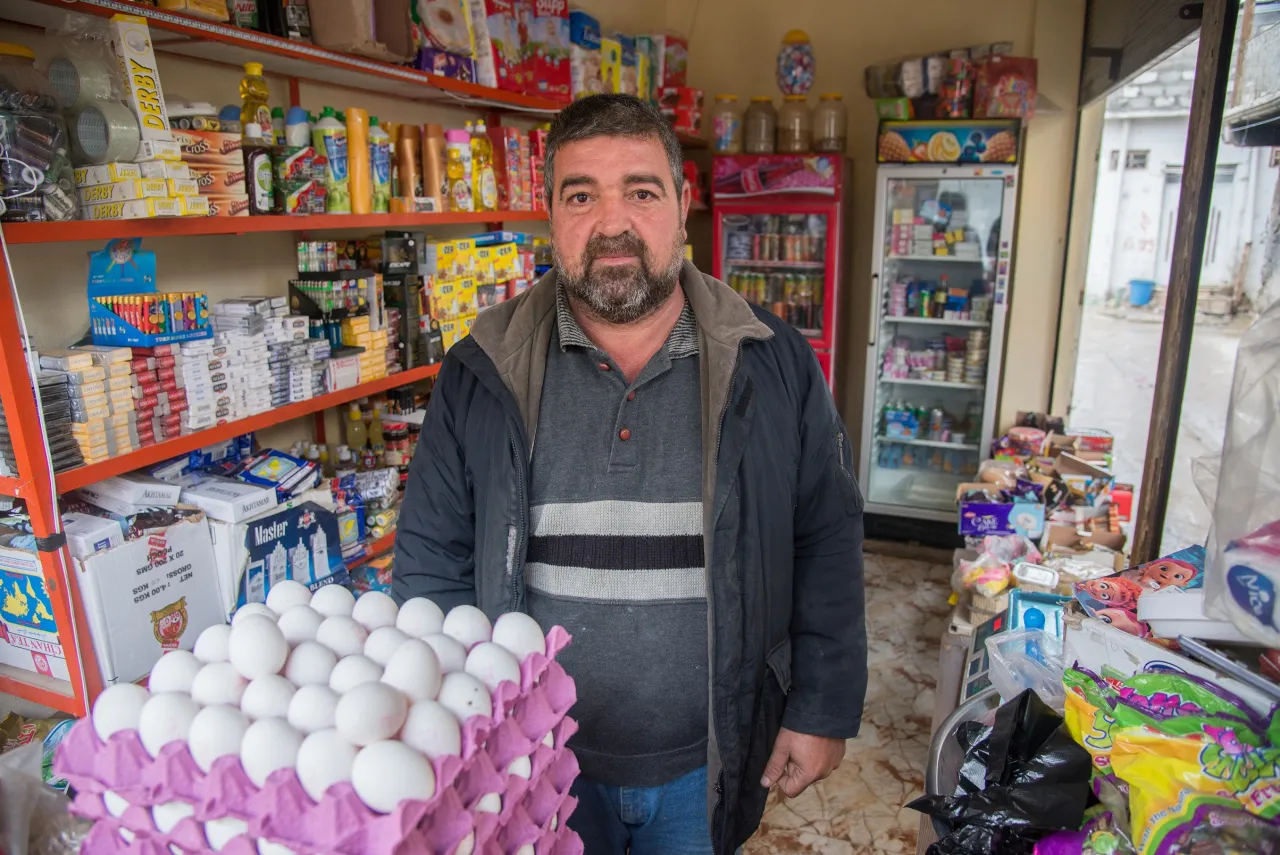
CC BY-NC-ND / ICRC / Ibrahim Adnan Sherkhan
Abo lost his grocery store during the fighting in Mosul in 2014. When he lost his house too, he fled with his neighbours. Over the next year they regularly asked themselves: "Can we ever return home?"
When the conflict was over, they mustered the courage to travel home, unsure what they would find. Eight families found their homes destroyed, but they were not deterred. The whole neighbourhood joined together to clean up and rebuild. Then other displaced families began arriving. "As people returned, the neighbourhood came alive again, which convinced others to come back too," says Abo.
Abo wanted to reopen his grocery store in a building that had just been completed, but he didn't have the money to get started: "The ICRC gave me the support I needed, and now the neighbours come to my shop for groceries."
In 2018, the ICRC gave 807 people cash grants to help them start or expand a business; recipients included women heads of household and people with disabilities.
“I want to carry on my father's legacy”
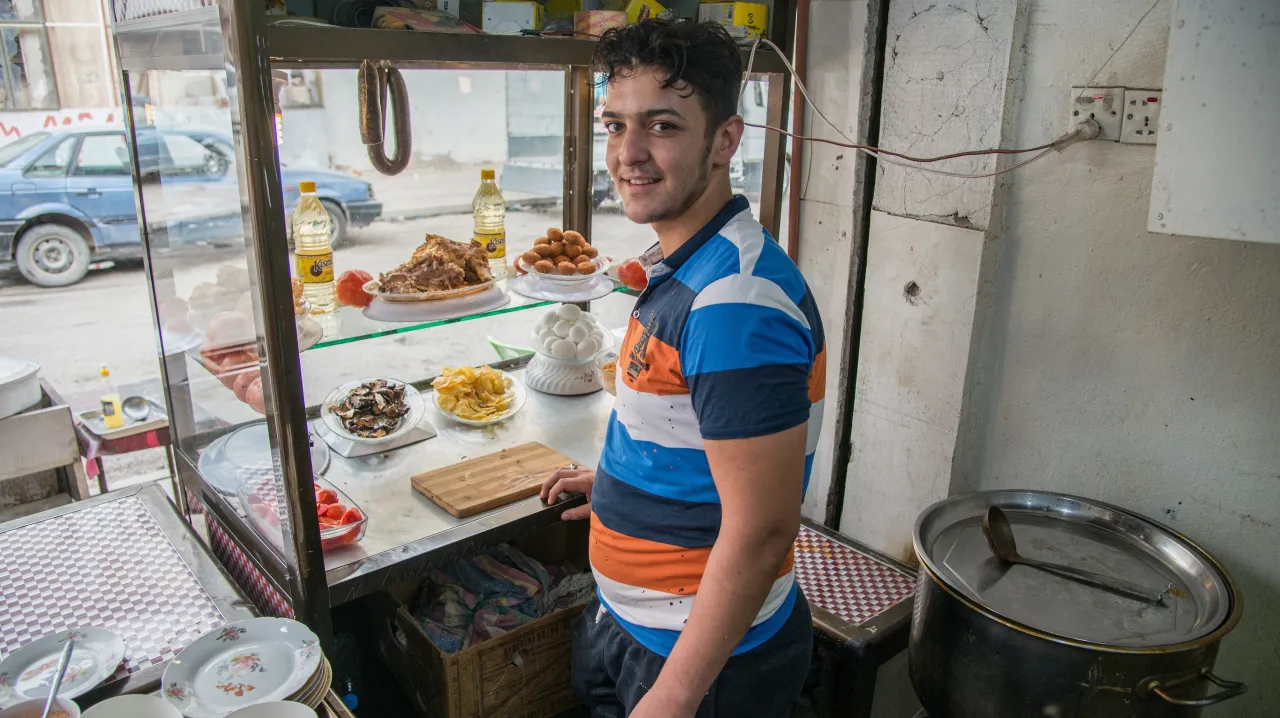
CC BY-NC-ND / ICRC / Ibrahim Adnan Sherkhan
Mustafa is a young man from Mosul who shoulders a lot of responsibility. After his father was killed in the conflict, it was up to him to take care of his four sisters. "I used to run a restaurant with my father," he says. "But when war broke out, we had to close down. It's been hard with him gone."
As the situation in Mosul grew more stable, Mustafa started dreaming about taking out a loan and reopening the restaurant. "Because the ICRC stepped in and backed my plan, I didn't have to borrow money to get the restaurant running. Now I'm a business owner," he says.
Mustafa hopes that life in Mosul will go back to normal: "When people return to the streets and the markets open up again, it's good for business. I want to revive the restaurant and carry on my father's legacy."
“I was drowning, and they rescued me”

CC BY-NC-ND / ICRC / Ibrahim Adnan Sherkhan
Faris is a blacksmith living in Mosul's old town. "Before the war," he says, "we were living comfortably. Business was good, and I was earning 300,000 to 400,000 dinars per week. In my extended family we all had homes and cars and spending money."
During the war, Faris lost his workshop and his home and had to work as a day labourer. When the war ended, he felt reborn. He wanted to reopen his shop. But the war had changed things and he was having a hard time finding the support he needed. That's when he heard about the ICRC's programme.
"The ICRC provided me with a means to earn a living," he says. Faris reopened his blacksmith's workshop. Business is booming because everyone wants to rebuild. As he puts it, "I was drowning in troubles, and they rescued me."
In 2018, 96 of the ICRC's cash grants went to people in Mosul's old town who had lost their small businesses in the recent conflict.



